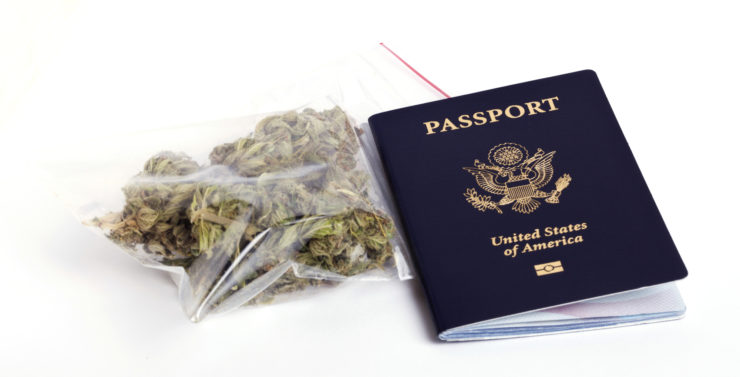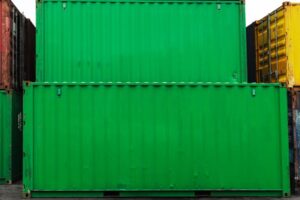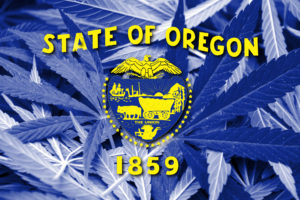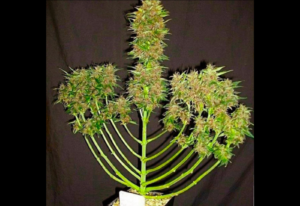
Our firm’s main practice areas include cannabis, China, trade and immigration. As such, it may not surprise you to learn that we get a lot of questions about the developing international cannabis trade. This is in large part due to the fact that Canada is on the verge of legalizing marijuana nationwide.
Importing or exporting cannabis in the United States at this point is extremely limited. Marijuana is listed as a Schedule I substance in the Controlled Substances Act (CSA) and it is illegal under federal law to possess or sell marijuana. The Controlled Substances Import and Export Act incorporates the schedules of the CSA. That means that the U.S. Customs and Border Protection is likely to seize any shipments of marijuana, even if shipments are going to or coming from a nation that has legalized marijuana in some form. There has even been some noise about barring travel by foreign marijuana company investors themselves as of late.
All of that said, not all parts of the cannabis plant are considered marijuana. The CSA defines “marijuana” as “all parts of the plant Cannabis sativa L., whether growing or not; the seeds thereof; the resin extracted from any part of such plant; and every compound, manufacture, salt, derivative, mixture, or preparation of such plant, its seeds or resin.” The second classification under the CSA is “Exempt Cannabis Plant Material” which includes the following four categories:
- Mature stalks
- Fiber produced from mature stalks
- Oil or cake made from seeds
- Seeds incapable of germination
Exempt Cannabis Plant Material also includes “any other compound, manufacture, salt, derivative, mixture, or preparation” of the items listed above. The term does not include resin derived from mature stalks as that is considered marijuana, not Exempt Plant Material.
Back in May 2018, the Drug Enforcement Administration (DEA) issued an internal directive acknowledging that Exempt Plant Material is not “marijuana.” The directive touched on how the distinction impacted internationally traded cannabis
[A]ny product that the U.S. Customs and Border Protection determines to be made from the cannabis plant but which falls outside the CSA definition of marijuana may be imported into the United States without restriction under the Controlled Substances Import and Export Act. The same considerations apply to exports of such products from the United States, provided further that it is lawful to import such products under the laws of the country of destination.”
There you have it straight from the horse’s mouth: Importing or exporting Exempt Cannabis Plant Material is lawful under the Controlled Substance Import Export Act. What is not clearly indicated is whether or not the DEA considers exporting industrial hemp, grown pursuant to the 2014 Farm Bill, as outside of the scope of the CSA.
By nature of the 2014 Farm Bill, industrial hemp cannot be imported. This is because the cultivation of industrial hemp is only permitted if grown pursuant to a state’s agricultural pilot program under the guidance of a state department of agriculture.
But before you go and order a metric ton of mature cannabis stalks, keep in mind that any shipment of any cannabis-related good can come with additional scrutiny. Even if a product is solely derived from Exempt Cannabis Plant Material, that doesn’t mean that Customs will thoroughly investigate its shipment. Importers and exporters should be prepared to prove that the product was solely derived from Exempt Cannabis Plant Material and not marijuana. This can be difficult to do as there is no way to truly test from what portion of the plant a product was derived. You may be thinking, “well can’t a lab confirm that a product contains no THC?” The answer, of course, is “yes”, but even though verifying THC content is important (THC is listed separately from marijuana as a controlled substance in the CSA) it is not dispositive in determining whether a product is derived from Exempt Cannabis Plant Material.
Intrepid importers and exporters should prepare to detail the chain of title for Exempt Cannabis Plant Material. This can include an affidavit from the original supplier of the plant that only Exempt Cannabis Plan Material was used, lab certifications, purchase orders, shipping documentation, and any other documentary evidence showing the source of the plant material. There is no single item guaranteed to satisfy the authorities, so it’s best to prepare multiple documents in case they are needed.






















